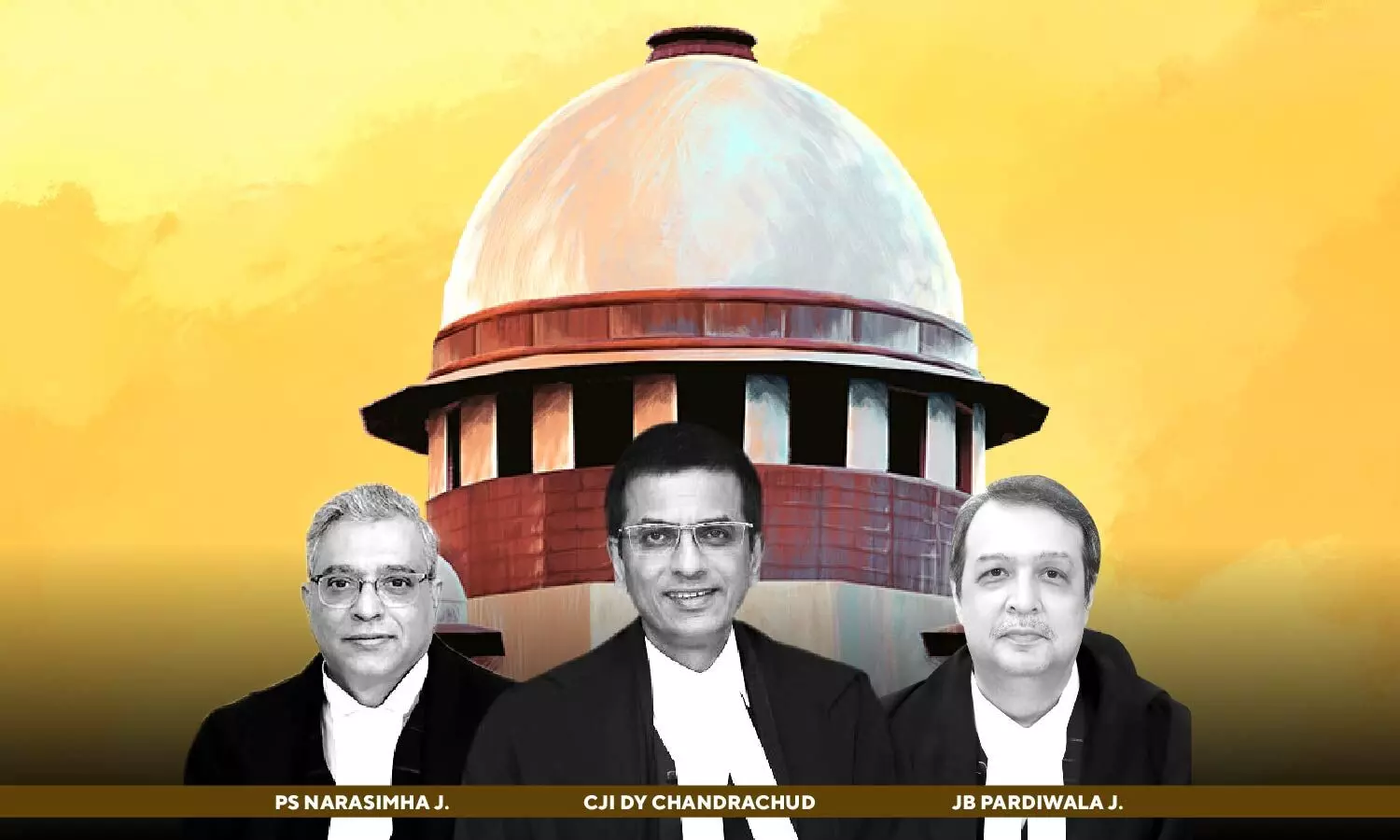
No Violation Of A Free & Fair Election: SC Dismisses Plea Challenging Open Ballot System For Rajya Sabha Elections
 |
|The Supreme Court has rejected a writ petition that challenged the open ballot system for the Rajya Sabha elections saying that it does not violate a free and fair election.
The three-Judge Bench comprising CJI D.Y. Chandrachud, Justice P.S. Narasimha, and Justice J.B. Pardiwala held, “The fact that an alternate means could subserve the same end would not make the Rule unconstitutional. As the Constitution Bench held, the Rule does not prevent or foreclose the exercise of the right to vote but only regulates it. The cancellation of the ballot is in a situation where the elector refuses to disclose it to the agent of his political party. … As the Constitution Bench also noted, this does not violate a free and fair election. The provision was inserted specifically to prevent cross-voting in elections to the Council of States. In this backdrop, there is no merit in the challenge.”
The Bench said that the elector having evinced an intent not to disclose the vote to the agent of their political party, it would be far-fetched to still sustain the vote by casting the burden on the Presiding Officer to disclose the vote to the authorised representative of the political party.
S.N. Shukla, the petitioner appeared in person while Additional Solicitor General K.M. Nataraj appeared for the Union of India, and Advocate Amit Sharma appeared for the Election Commission of India.
In this case, a petition was filed by Lok Prahari i.e., a society registered under the Societies Registration Act, 1860 challenging the Rule 39-AA of the Conduct of Election Rules, 1961, and the proviso to Section 33 of the Representation of the People Act, 1951. The said Rule 39-AA was challenged on the ground that it was ultra vires Article 80(4) of the Constitution, violative of Article 14, and contrary to the provisions of Section 123(2) of the 1951 Act.
After hearing the contentions of the parties, the Supreme Court noted, “The challenge in the petition, as framed, is to the validity of Rule 39-AA. The challenge must fail in view of the judgment of the Constitution Bench. However, the petitioner, appearing through Mr S N Shukla, submits that the Rule should be read down. The manner in which he proposes that the Rule should be re-interpreted is by postulating that in the event that the elector does not show the ballot to the agent of the political party, the Presiding Officer should disclose the ballot to the agent of the political party. In that event, it was urged, there would be no loss of the right to vote per se.”
The Court observed that apart from the fact that it is not the canvas of the petition, as drafted, even on merits, there is no substance in the plea.
“This lies purely in the realm of legislative policy. There is nothing per se discriminatory in the provision”, asserted the Court while dealing with the issue of the proviso to Section 33 of the 1951 Act.
The Court further held that the parliament is entitled to regulate the manner in which nomination papers should be presented and the requirements for a valid nomination.
Accordingly, the Apex Court dismissed the plea.
Cause Title- Lok Prahari v. Union of India & Ors.